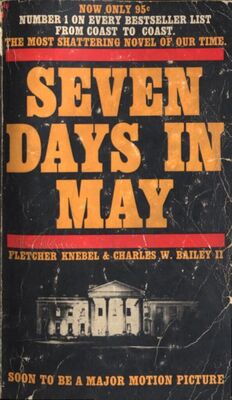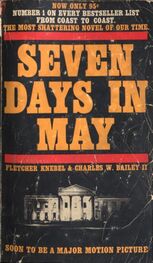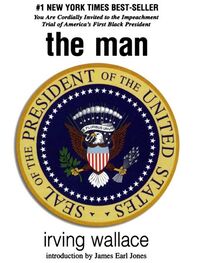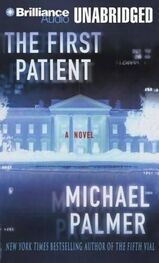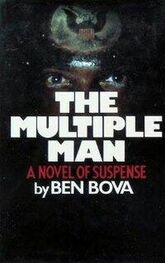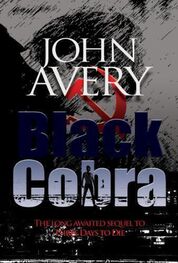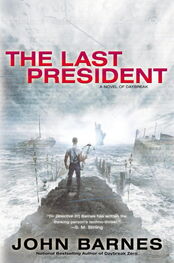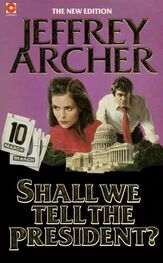Clark lowered his voice, for the hospital tent was crowded, but his words were intense.
"Jordie," he said, "as far as I'm concerned I saw nothing and did nothing. What happened to you has happened to millions of men, and if you're as smart as I think you are you'll forget it ever did happen. I'm never going to mention it again-to you or anyone else."
In the years that followed, Clark kept his word. In fact, on a couple of occasions when Lyman seemed disposed to rehash the incident Clark wrenched the conversation into another channel. No phrase that might reawaken the memory of that morning, not even the nickname "Yankee boy," was ever again used by him in talk with Lyman.
But Lyman had not been able to follow Clark's advice, although he tried to. For months the incident regularly plagued his dreams. Even now he would relive it in his sleep once or twice a year. The very fact of his close political ties with Clark, their constant association, kept it in the back of his mind. The Georgian had been on hand for all the political crises-the key television speech in Lyman's race for governor of Ohio, his nomination for President, election night, and even the evening last winter when Lyman decided to fight his treaty through a balky Senate without accepting any reservations. Lyman never admitted to himself, much less to Clark, that he needed him. Each time he called on his friend he found other reasons- Clark's judgment, his easy humor, his common sense and common touch. But he was always there at the right time.
Now the President rubbed the last crumbs of toast from his fingers and reopened the conversation.
"I'd be less than honest, Ray, if I said the poll didn't hurt. It sure does. But I know this treaty is the right thing to do. Wait till you see the polls this fall."
Clark again assumed his drawl. "Ah'm not arguin' with you, Mistuh President, Jordie, suh. If Cousin Feemerov ovuh in the Kremlin pulls a fast one, we holluh 'foul' an' staht stackin' the bombs again." He reverted to normal accents. "Either way, by fall, you'll be in better shape."
Lyman laughed. "Ray, if I didn't know you better I'd think George Bernard Shaw picked you as the model for Eliza Doolittle. How do you decide when to turn that cracker dialect on and off?"
Clark's smile was slow and lazy. "Mr. President, a man has to keep in practice. In Georgia I'm a country boy trying to keep Sherman from coming back. In Washington I am a graduate of the Harvard Law School engaged in the practice of political science and high statesmanship."
"Okay, professor," Lyman replied. "Now suppose you give me a little lecture on the state of the Senate these days, with special reference to my program."
"I'm not sure yet, Mr. President, but I think it will be sticky. I think it might be smart to put off the big domestic stuff till next year. I know there's an election coming up, but we senators of the United States are feeling a little pushed around after that row on the treaty."
"Spoken like a true Senate man, Ray," Lyman said. "I don't suppose you did any of the pushing?"
"Why, Mr. President, I wouldn't say that, now. I may have helped some of my colleagues reason together a bit, but no more. Anyway, there won't be anything much doing on the Hill for three weeks now, with the recess starting. I'm in the clear myself except for an armed services meeting tomorrow to find out what will be left of our defenses after you take the bombs away."
"Scott going to be there?"
"Yessir, Gentleman Jim himself is going to deliver the over-all report and then we'll hear in detail from the Navy on its plans."
"Well, if Prentice gets Scott to open up on the treaty again, keep an eye on him. Give me a ring if he says anything interesting, will you?"
Clark got up from the table. "Sure will. By the way, what do you hear from Doris and Liz?"
"Doris called last night from Louisville," said Lyman. "Liz's baby is due in a day or two. Certainly this week. Potential grandpas get kind of excited, Ray."
The Lymans' only child, Elizabeth, had been married a week before his own inauguration.
"We could use a little one right now," said Clark. "Why waste your first grandchild on a week when you're riding high in the polls?"
"Liz is a great little politician," said Lyman affectionately. "I think she's timing it perfectly for Pop."
"Give 'em both my love," said Clark.
The two friends headed for the west wing. Lyman dropped off at his office and Clark sauntered out through the visitors' lobby. There were only two reporters on the job at this early hour, but they both wanted to know how the President felt about the new Gallup Poll.
"I never quote the President," said Clark. The lazy smile spread over his face. "But you can quote me, if you're hard up. Twenty-nine per cent of the people still think Truman lost to Dewey in 1948."
Lyman settled himself behind the big desk in his office. A moment later Paul Girard popped his head through the door from his adjoining cubbyhole. Lyman looked at him and shook his head.
"I can tell by those eyes, you didn't get to bed early," he said. "Where were you last night?"
"In the camp of the enemy," Girard said, shaking his big, ugly head morosely. "I dined, or rather drank, at the home of Stewart Dillard, lobbyist for Union Instruments."
"Watch it." Lyman's grin belied his tone. "Remember Sherman Adams and Matt Connolly."
"If I promised anybody anything last night, I can't remember it this morning," Girard said. "Anyhow, I spent most of the time listening to that bastard Prentice proclaim his undying loyalty to you."
"I'll bet he did. Well, we can console ourselves in the knowledge that no one else likes him either."
"General James Mattoon Scott ought to love him, the way Prentice was talking about him last night," Girard grumbled. "Christ, the way he makes it sound, you'd think Scott could walk on water."
He pulled a white, five-by-seven card out of his pocket and slipped it into a holder on Lyman's desk.
"There's today's line-up, Mr. President. The first batter is Cliff Lindsay. He's due at 8:40, or a minute and a half ago."
"Hold him up for a couple of minutes, please, Paul," Lyman said. "I want to make a call."
He flicked the switch on his intercom box as Girard left.
"Esther? Please get me the Vice-President. Yes, he's probably still at home."
A red light winked beside his phone and he pushed the proper button.
"Vince? Yeah, I know. I saw it too. How about coming down for lunch? You can cheer me up. I want to talk about your trip, too. 12:30 okay? Fine. Thanks, Vince."
Cliff Lindsay, president of the AFL-CIO, bowed slightly to the President as Girard ushered him in. He said nothing as they shook hands and Lyman motioned him to a chair,
"You sent for me, Mr. President?" Lindsay's tone was totally noncommittal.
"Yes, I did, Cliff. Those strikes at the missile plants on the Coast don't make any sense at all to me. The men are getting good wages. There are no valid grievances that I can see. Maybe there's something I don't know. I thought maybe you could fill me in."
"You've been getting your story from the Secretary of Labor," Lindsay said stiffly. "We don't consider him exactly an unbiased source."
Lyman smiled. "You mean he's too pro-labor?"
"If that's intended as a joke, Mr. President, I can assure you the executive council won't take it that way."
"I can assure you this is no time for jokes," Lyman answered, his own tone now sharp too. "I want you to tell me why those men are on strike."
"It's no secret, Mr. President. Sure, it's a jurisdictional dispute. The sheet-metal workers get into a row with the aluminum workers, the Teamsters side with the sheet-metal guys and next thing you know the jobs are picketed. Maybe it's not the best beef in the world, but that's no cause for your Secretary of Labor to start hollering that labor is irresponsible. He knows damn well that's no way to get people back to work."
Читать дальше